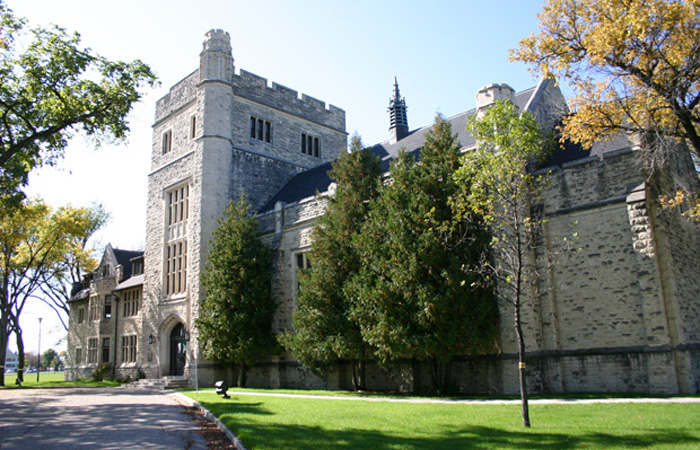Canadian Mennonite University (CMU) has unveiled the completion of a $1.7-million Centre for Environmental and Economic Resilience, thanks in part to investments by the governments of Canada and Manitoba.
“This investment at Canadian Mennonite University will lead to collaborative research among centre partners and provide educational and research seminars and opportunities for students to interface with industry partners,” said Education and Training Minister Ian Wishart. “This partnership with CMU sets up our students to become leaders in science and technology, and creates a place for students in Manitoba to thrive and spur economic resilience and innovation.”
The project involved the renovation of unused space to create a Centre for Environmental and Economic Resilience. The Government of Canada provided $745,906 through the Post-Secondary Institutions Strategic Investment Fund, the government of Manitoba invested $418,504 and Canadian Mennonite University provided $522,605.
“This once-in-a-generation investment by the Government of Canada is a historic down payment on the government’s vision to position Canada as a global centre for innovation,” said Doug Eyolfson, member of Parliament, Charleswood – St. James – Assiniboia – Headingley. “That means making Canada a world leader in turning ideas into solutions, science into technologies, skills into jobs and start-up companies into global successes. This investment will create conditions that are conducive to innovation and long-term growth, which will in turn keep the Canadian economy globally competitive.”
The Centre will support the university’s research and provide incubator facilities to bridge research with community-based industry partners and social enterprises committed to moving to a green economy.
“The Centre for Resilience is a co-working lab for social entrepreneurs – for businesses and non-profits working at social and ecological challenges,” stated James Magnus-Johnston, Director of the Centre for Resilience. “We’re thankful for the opportunity to create a space designed to meet the needs of the 21st century that will maximize the impact of social entrepreneurs, and allow students to work on complex, real-world problems.”




